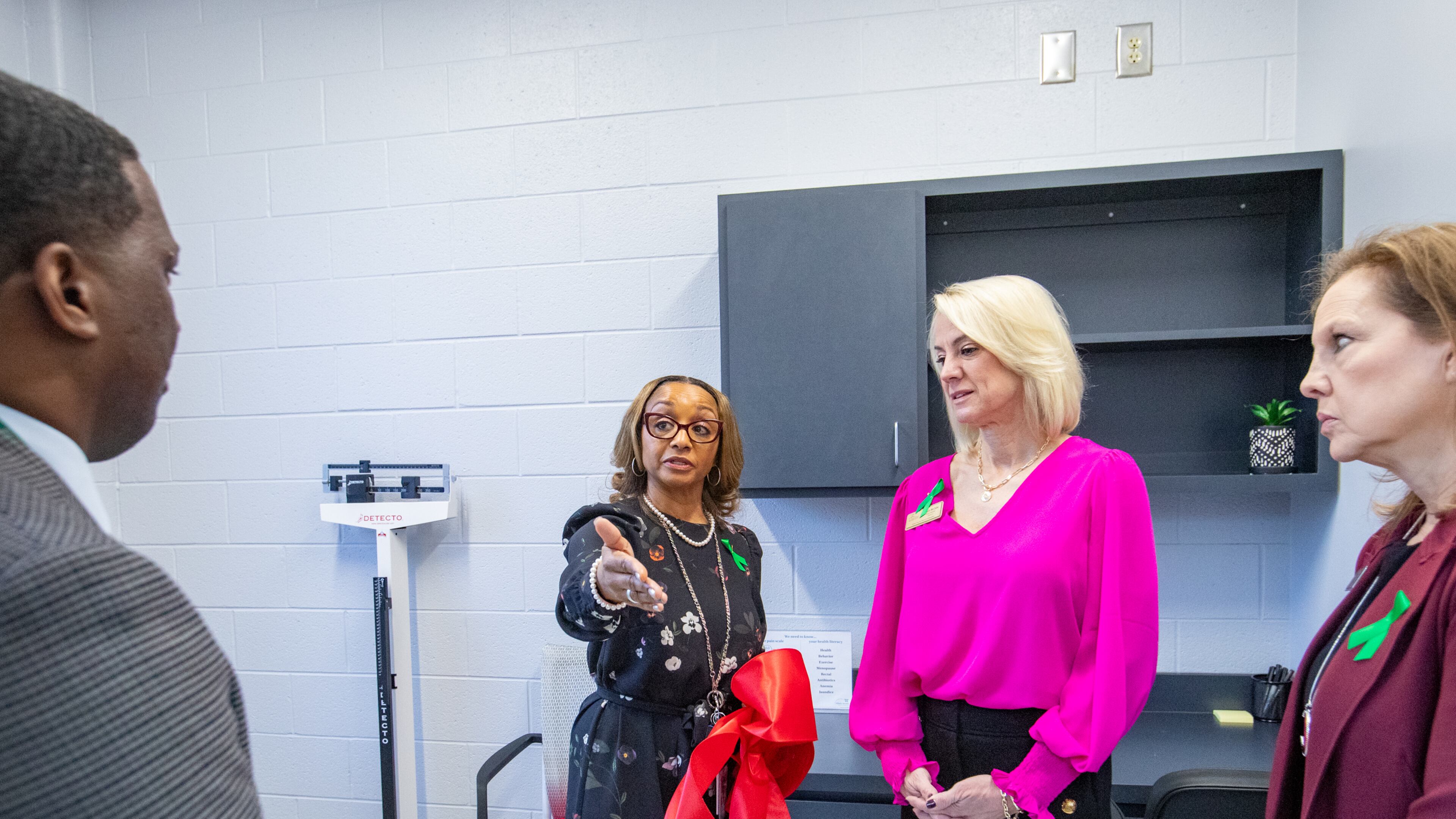Fulton County opens school-based health center touted as a ‘game changer’

Fulton County Schools opened its first school-based health center at Banneker High in College Park on Wednesday, a facility that will provide an array of services, including for mental health.
The center will serve Banneker’s 1,600 students, their siblings and students from Banneker’s feeder schools. The facility will augment the school’s existing medical clinic and Student and Families Engagement (SAFE) center, which provides clothes, food and other support services.
“This (health center) ... is a game changer because it will complement those services,” said Lynne Meadows, director of health services for Fulton County Schools.
The facility sits in the school’s main hallway and was created in partnership with the Family Health Centers of Georgia Inc., which will provide funding for medical services.
Georgia is below recommended standards for the ratio of mental health providers to students on the K-12 and college level. Fulton, like many school systems, is spending more money for mental health and counseling services.
“Mental health has become ... very important since COVID,” said Fredericka Roper, the organization’s director of school-based health center programs. “We do offer ... behavioral health, whether it be on-site, whether it be through referral, or whether it be through telehealth.”
Roper said the center has partnered with ride-sharing company Uber to provide students rides to off-campus sites if they need additional mental health care services.
Students will also be able to get vaccines, physicals and other services. According to the Atlanta-based Centers for Disease Control and Prevention, asthma is one of the leading causes for absenteeism in schools. Meadows said it’s the top cause for kids missing school in Fulton County. She hopes the new facility will help change that.
“The good news is (kids with asthma) can have a medical home,” she said. “So (they can get) things like inhalers that parents might (not) know that they need or health care plans that parents might (not) know they need. They no longer have to wait for appointments.”
Banneker High Principal Vincent Golden said the school’s attendance rate is around 80%. He believes a lot of it is health-related. According to state data, 43.7% of the school’s students are from economically disadvantaged homes.
School-based health centers are usually located in disadvantaged communities or rural areas, where families may lack adequate access to care or transportation to travel to a physician’s office. Research shows they can help reduce health disparities that exist in low-income communities and improve school attendance. That’s a priority for Golden.
“The biggest impact that we believe this will have for our students is improving our attendance,” Golden told The Atlanta Journal-Constitution. “We have a lot of students (who) because of the lack of pediatricians in this area and medical attention for them, they stay home.”
Officials cut the ribbon on the center Wednesday, but its first day of operation will be Monday.



